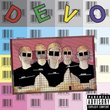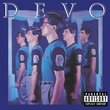| All Artists: Devo Title: Oh No It's Devo Members Wishing: 11 Total Copies: 0 Label: Collectables Original Release Date: 1/1/2005 Re-Release Date: 6/28/2005 Genres: Alternative Rock, Pop, Rock Styles: Hardcore & Punk, American Alternative, New Wave & Post-Punk, Dance Pop Number of Discs: 1 SwapaCD Credits: 1 UPC: 090431655221 |
Search - Devo :: Oh No It's Devo
 | Devo Oh No It's Devo Genres: Alternative Rock, Pop, Rock
Japanese only remastered pressing packaged in a paper sleeve. Warner. 2008. |
Larger Image |
CD DetailsSynopsis
Album Description Japanese only remastered pressing packaged in a paper sleeve. Warner. 2008. Similar CDs
Similarly Requested CDs
|
CD ReviewsTime out for a deceptively serious album Alabaster Jones | earth | 05/17/2010 (5 out of 5 stars) "Devo has always been good at tackling serious (or semi-serious) subject matter under the veil of silliness, but I think this is their best attempt at such. While New Traditionalists is normally mentioned as Devo's "dark" album, I think this one tops it in that area. Themes of impending mental collapse, paranoia, social decay, and various forms of mental illness are explored liberally throughout the album.. same as any other Devo release on the surface, but the music is so danceable and deceptively innocent that it may take several listens to pick up on the various layers of meaning in these ostensible pop songs. The most blatant examples of this are "Big Mess" and "I Desire" the lyrics of which were culled from crazy letters written to the band by an obsessed fan, and the journal of would-be Reagan assassin John Hinkley, respectively. In any case, this is probably not the "best" Devo album, strictly speaking, but it is the one that gets the most play at my house. In spite of, or probably because of, its brilliantly disguised lyrical content, it's still the most fun of all of the band's albums for me. This is an easy 5 stars, as is every Devo album that came before it." Oh, yes! It's Devo D. K. Malone | earth | 06/30/2010 (4 out of 5 stars) "Like some other reviewers have mentioned, I'm surprised at the nay-saying I'm hearing about this album lately. "This was the beginning of the end of Devo" and other such horse @#$%. That's definitely news to me. I know it never really qualified as a "hit" album per se, but I recall it being very well received by the fanbase, which by that time had boiled down a bit; many of the the Jonee-Cum-Lately "Whip It rules!" fans had fallen off by this time. Maybe Oh No It's Devo wasn't exactly the band at their peak, but it's an excellent album. As I recall, Devo referred to it as their "evil clown period". I sort of consider it to be part of an unofficial "Devo Phase II" trilogy that began in 1980 with Freedom of Choice, continued with New Traditionalists in 1981, and ended in 1982 with Oh No. It was the follwing album, 1984's Shout, that made it clear that Devo had run out of juice and was no longer vital. I'm loving their new comeback album and all, but I would argue that this was Devo's last truly great classic album. Make no mistake: Oh No It's Devo is quintessential and a must-own for even the most casual spud."
|

 Track Listings (11) - Disc #1
Track Listings (11) - Disc #1





